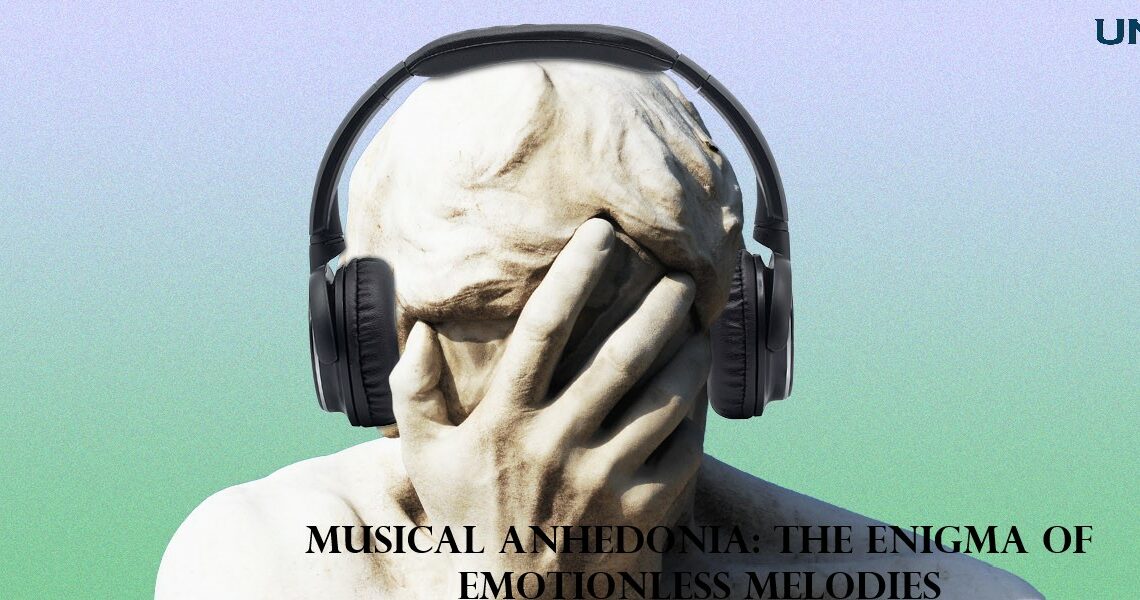Understanding Musical Anhedonia: When Music Fails to Move

Music has been an integral part of human culture and expression for millennia. It has the power to evoke powerful emotions, create lasting memories, and even heal the soul. However, for a small percentage of the population, this enchanting experience remains elusive. Enter “musical anhedonia,” a fascinating condition where individuals don’t experience the joy and emotional connection typically associated with music. In this blog, we delve into the world of musical anhedonia, exploring its definition, potential causes, and how it impacts those affected.
What is Musical Anhedonia?
Musical anhedonia, a term coined by researchers, refers to the absence of pleasure or emotional response when listening to music. This intriguing phenomenon is experienced by individuals who have normal hearing capabilities, possess musical knowledge, and are neurologically typical in most other aspects. In other words, they can hear and process music just like anyone else, but the music simply does not evoke an emotional response or any sense of enjoyment within them.
Unraveling the Enigma: Causes and Mechanisms
At its core, the biological mechanisms behind musical anhedonia are still not fully understood. Research into this condition is relatively new and ongoing, and experts continue to explore potential factors that might contribute to this phenomenon. Some of the proposed causes include:
1. Neurological Differences: It is believed that certain brain regions associated with reward and pleasure responses might be less active in individuals with musical anhedonia when exposed to music. These regions include the ventral striatum and the nucleus accumbens, which play a crucial role in processing pleasurable experiences.
2. Genetic Factors: Genetics could also play a role in determining an individual’s responsiveness to music. Specific genes might be associated with how the brain processes auditory stimuli and generates emotional responses.
3. Developmental Influences: The environment and early exposure to music during a person’s developmental years might also influence how the brain processes musical stimuli. Lack of exposure or varying musical experiences during childhood could impact one’s ability to connect with music emotionally later in life.
Living with Musical Anhedonia
Living with musical anhedonia can be a unique and sometimes challenging experience. In a world where music is pervasive and often used to express feelings and bond with others, individuals with musical anhedonia might feel disconnected or even isolated in social situations involving music. They may struggle to comprehend why music moves others so deeply while it has little to no impact on their own emotions.
It’s important to note that musical anhedonia is not related to a lack of interest in music or an inability to recognize its structural components. Some individuals with this condition may even develop a fascination with music, exploring it as an intellectual pursuit rather than an emotional one.
Research Implications and Future Directions
Despite the complexity of musical anhedonia, the scientific community’s growing interest has sparked numerous studies aimed at unraveling its mysteries. Understanding the mechanisms behind this condition could offer valuable insights into the human brain’s intricate relationship with music and emotions. Additionally, it might help researchers develop more tailored approaches to music therapy and interventions for various emotional and psychological disorders.
Conclusion
Musical anhedonia remains a compelling and relatively unexplored facet of human perception and experience. While many of us find solace, joy, and inspiration through music, a small segment of the population experiences a distinct disconnection from its emotional power. As researchers continue to investigate the underlying causes and mechanisms, we may come to appreciate the diversity of human experiences and the profound ways music can touch our lives.
If you suspect that you or someone you know might be experiencing musical anhedonia, it is advisable to seek the guidance of a qualified healthcare professional or audiologist. Understanding this condition could lead to a greater appreciation of the intricacies of human perception and pave the way for new avenues of research into the fascinating relationship between music and the mind.
Picture Courtesy: Google/images are subject to copyright








